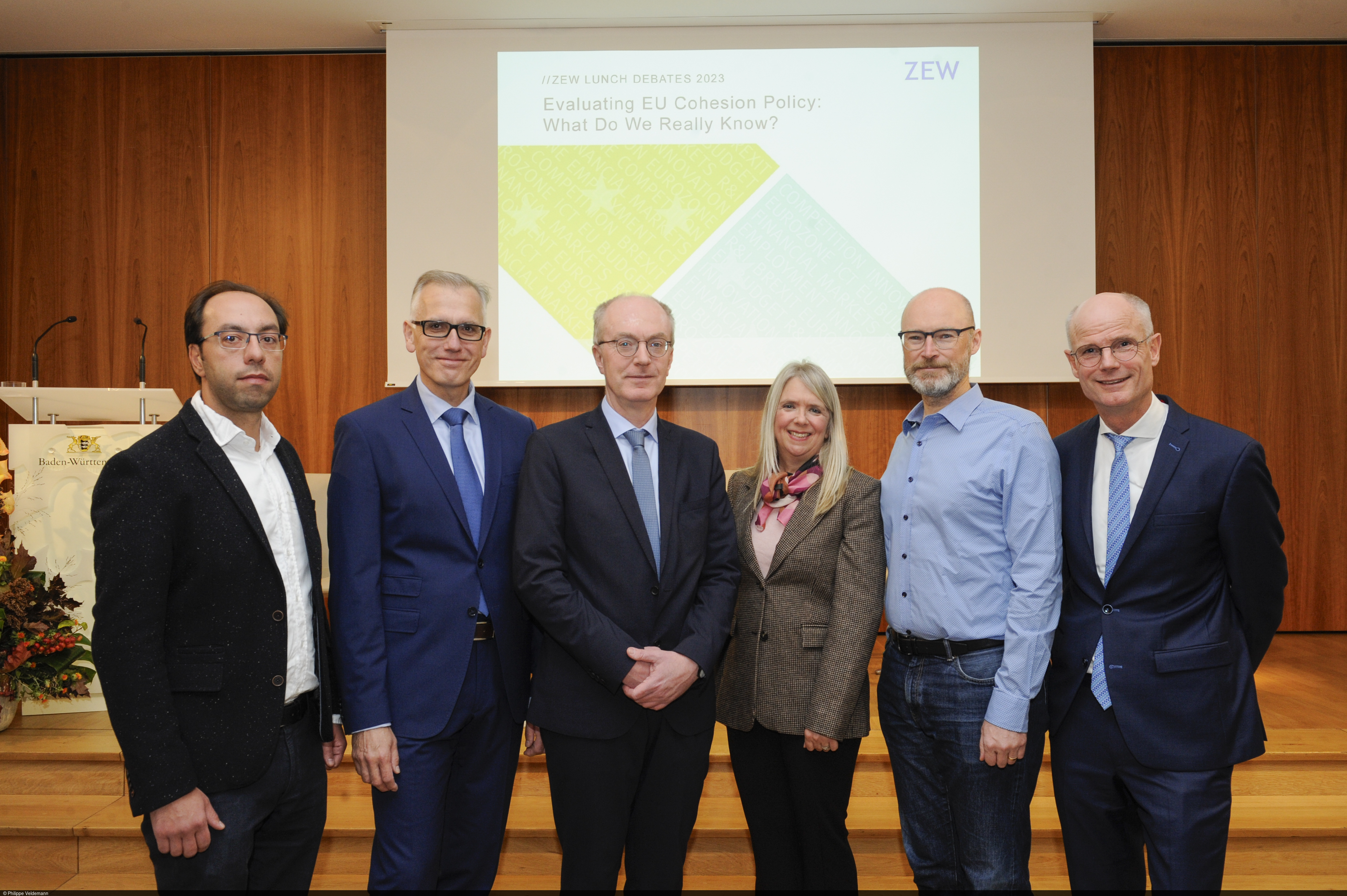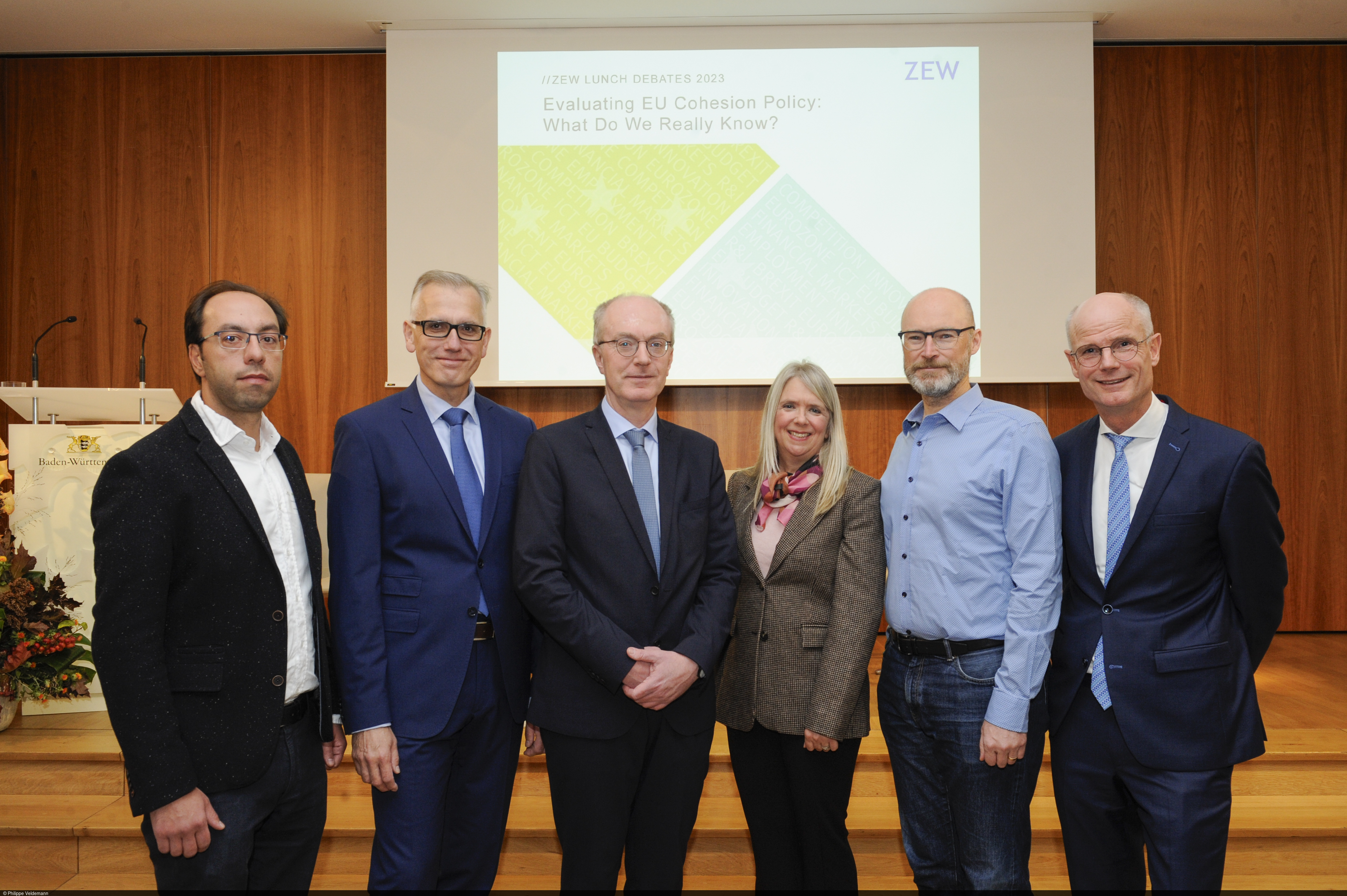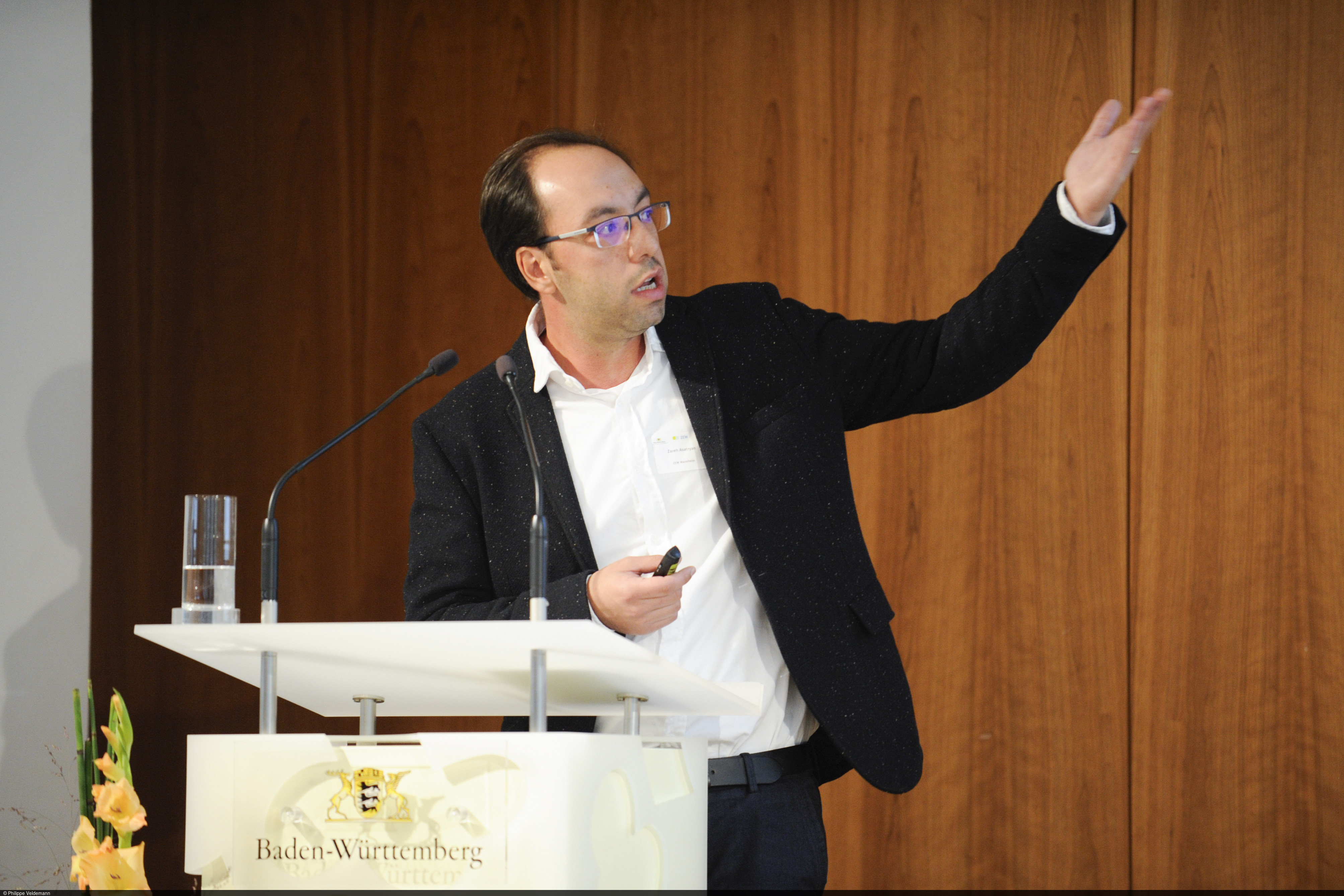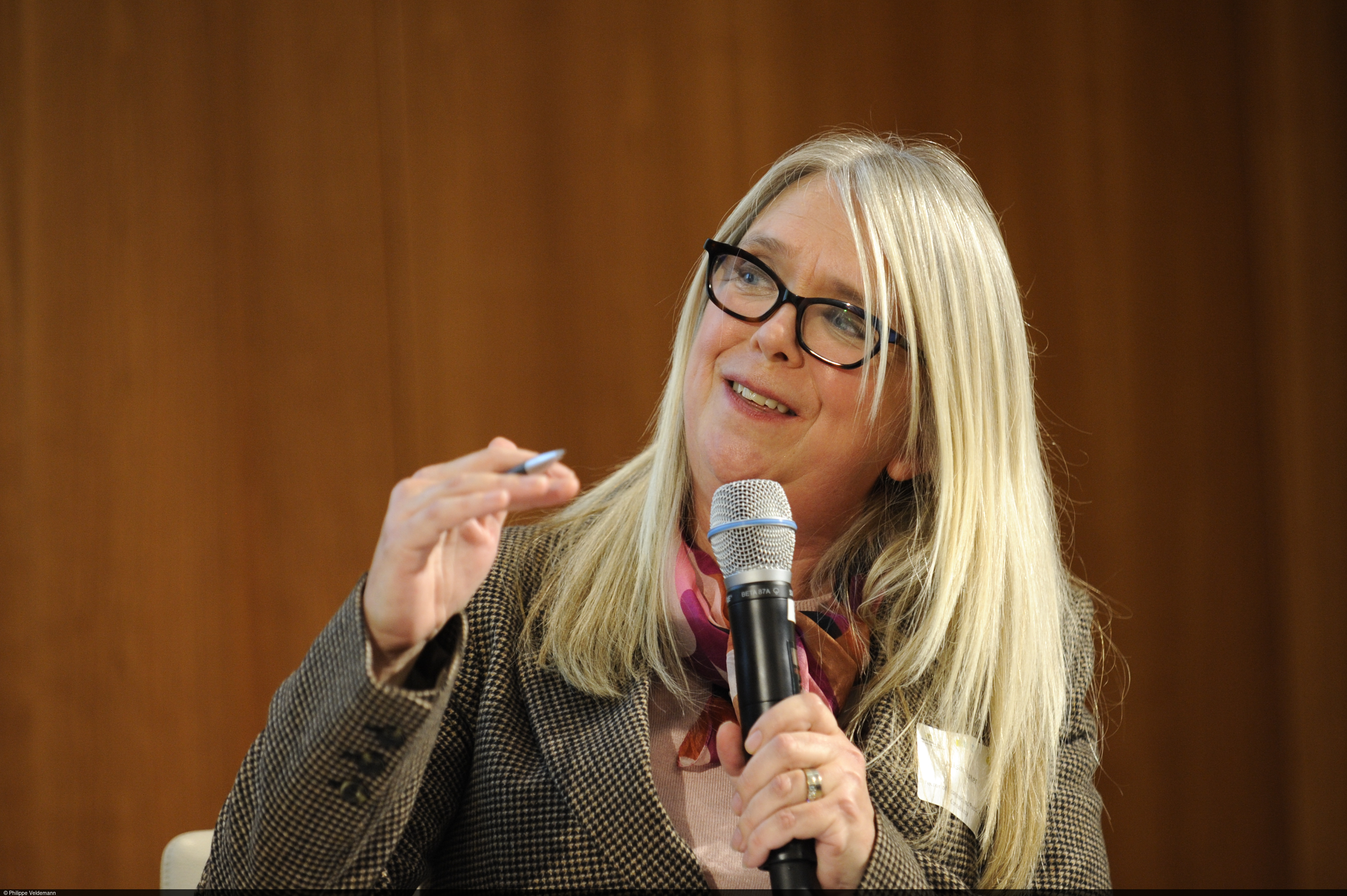Market for EU Evaluations Lacks Competition
Public EventsZEW Lunch Debate in Brussels on the Evaluation of EU Cohesion Policy
Around 30 per cent of the current EU budget is allocated to cohesion and structural policy, striving to close economic gaps between European Member States. To assess the success of this policy, robust evaluations are key. On 18 October 2023, ZEW economists Professor Friedrich Heinemann and Dr. Zareh Asatryan discussed the requirements for cohesion policy evaluations and the need for reform with high-ranking representatives from politics and business before an audience of approximately 120 guests at the Lunch Debate in Brussels.
According to the researchers, the market for evaluations is too marked by national boundaries, while markets within countries are highly concentrated. “Within individual Member States, there are often only few providers that dominate the market for evaluations of cohesion programmes. A genuine EU internal market for this crucial service is lacking,” highlighted ZEW economist Dr. Zareh Asatryan in his presentation. He also noted, “Many evaluators report significant client involvement. It turns out that evaluations yield more favourable results the more influence the clients have on the work of the evaluators, and when markets are concentrated in the hands of a few companies. Our analysis shows that these distortions lead to results of evaluations that deviate from what we know from economic literature about the effects of cohesion policy.”
Too many goals make evaluation difficult
“The EU’s structural policy has been criticised in recent years for its ‘inflation of goals’, aiming to adjust numerous factors to harmonise Member States. It is difficult to keep track of all measures and their impact. Without a clear priority of goals, a meaningful evaluation is ultimately not possible,” warned Stef Blok from the European Court of Auditors. Dirk Kranen from the German Federal Ministry of Finance outlined the requirements for the evaluation system from the perspective of the largest EU contributor: “Any new budget planning should always start with a budget of zero. New budgets can only be justified if their effects and contribution to European added value are demonstrated through convincing evaluations.”
Lewis Dijkstra from the European Commission’s Joint Research Centre pointed out the limitations and possibilities of national evaluations: “Programme evaluations must deal with the benefits of a programme, and it is not their task to address inadequate national structures, such as those related to the labour market or the education system. The advantage of national evaluation teams is that they are better acquainted with the country’s framework conditions.” ZEW economist Friedrich Heinemann urged keeping the specific interests of all parties in mind: “Member States want to prove that their programmes were a success, the European Commission wants to demonstrate that it is managing the EU budget correctly and evaluators want to stay in business. All these are obstacles on the way to truly credible evaluations.”










